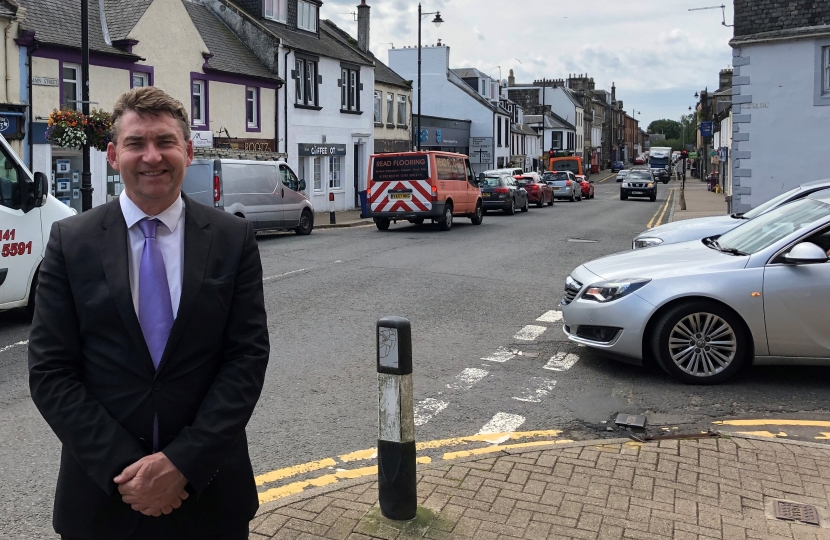
Local MSP Brian Whittle says the SNP’s coalition deal with the Scottish Greens must not be an excuse for the Scottish Government to reject improvements to roads like the A77, A75 and A76.
The South Scotland MSP spoke out after details of the SNP/Green tie-up emerged which suggested that the parties would look unfavourably on roads investment. Brian, who has led calls for improvements to the A77 as part of a wider package of investment in the South West’s transport network, is concerned that the SNP will use their deal with the Greens as an excuse for not upgrading the route, putting jobs and the economy at risk.
Whittle, who is the Scottish Conservatives’ spokesman for the Environment, argues that investment in the A77 to bypass towns and reduce congestion at places like the Bellfield interchange would help reduce air pollution. He’s also called for any upgrade to include facilities for more fast charging points for electric vehicles and the creation of a hydrogen fuelling station to help encourage drivers to move away from fossil fuel vehicles.
Brian Whittle MSP said:
“This coalition deal might be good for the Greens and the SNP, but there’s no indication that it will be good for Scotland.
At a time when we should be thinking about how to grow our economy and recover from the pandemic, the SNP have joined forces with a party who publicly oppose growing the economy.
Instead of practical policies to improve our road network and encourage people transition away from fossil fuelled vehicles, the SNP & Greens are proposing to make life more difficult for drivers. While I support improvements to walking, cycling and public transport, there’s no getting away from the fact that for the many Scots living outside cities, a car is very necessary.
We need to tackle climate change, but simplistic superficial policies that attack road users will do more harm than good. Roads like the A77 are the main link between communities across the south west, as well as a vital part of Scotland’s economic infrastructure.
I’ll keep fighting for improvements to all aspects of our local transport network to make our roads safer, reduce jams and connect communities, and doing it in a sensible, practical way that helps us prevent climate change.”


